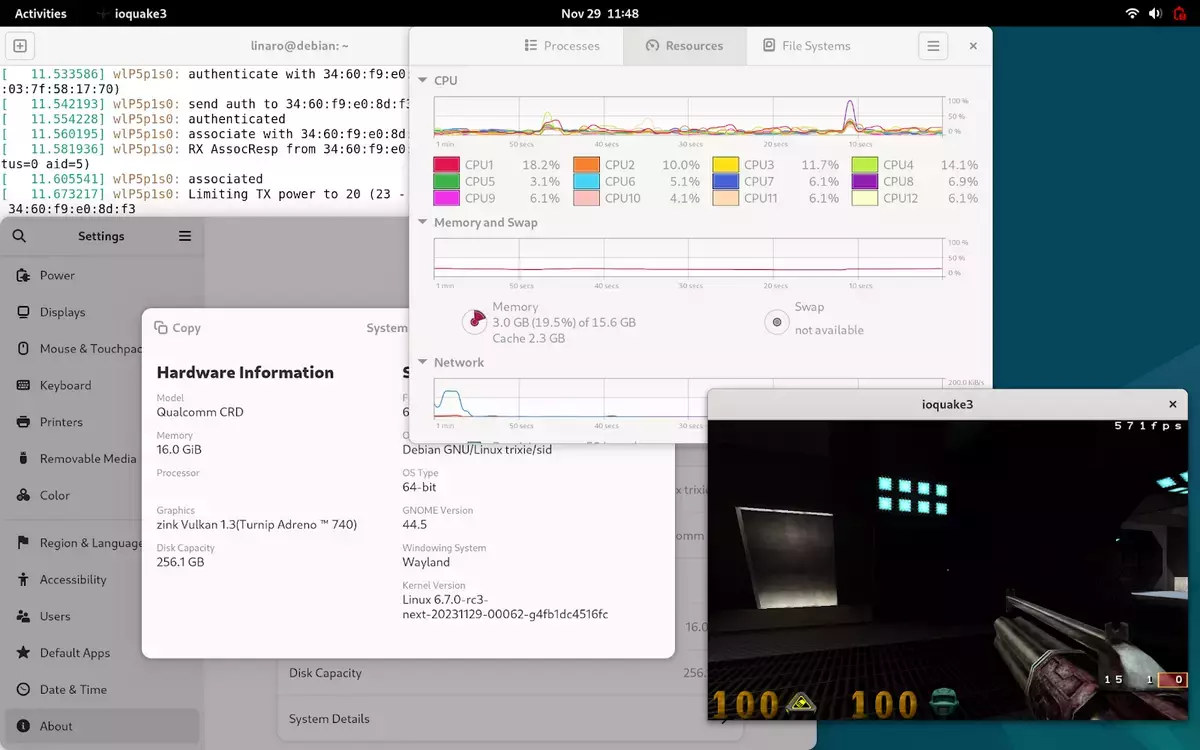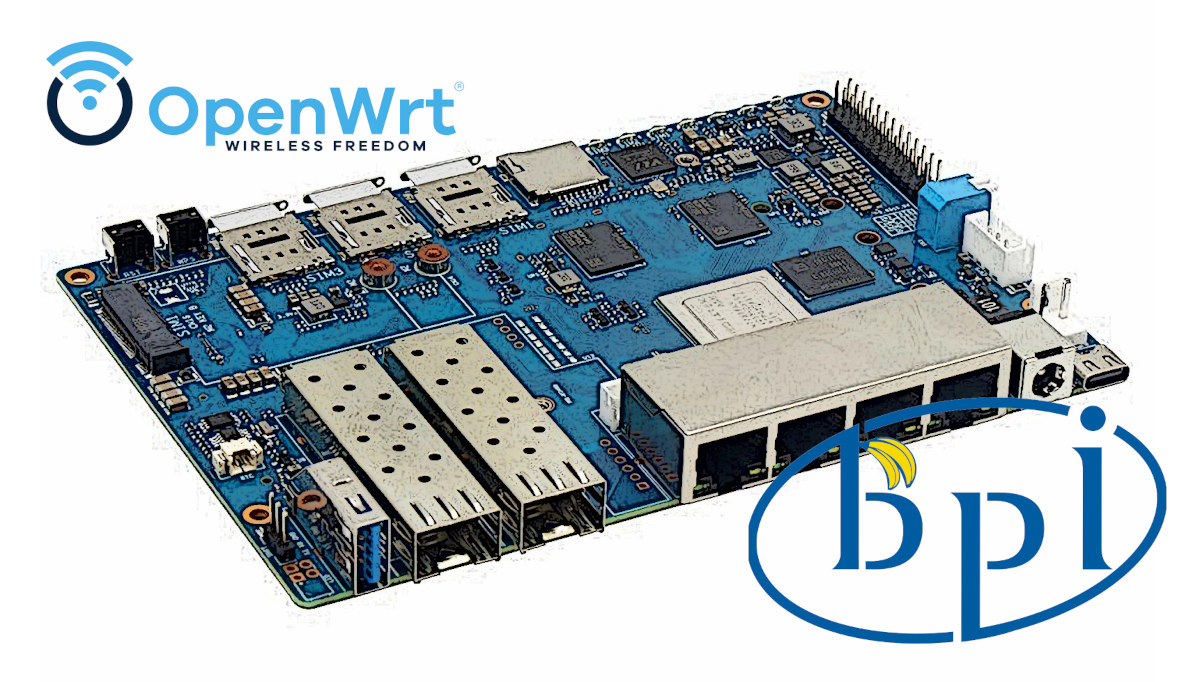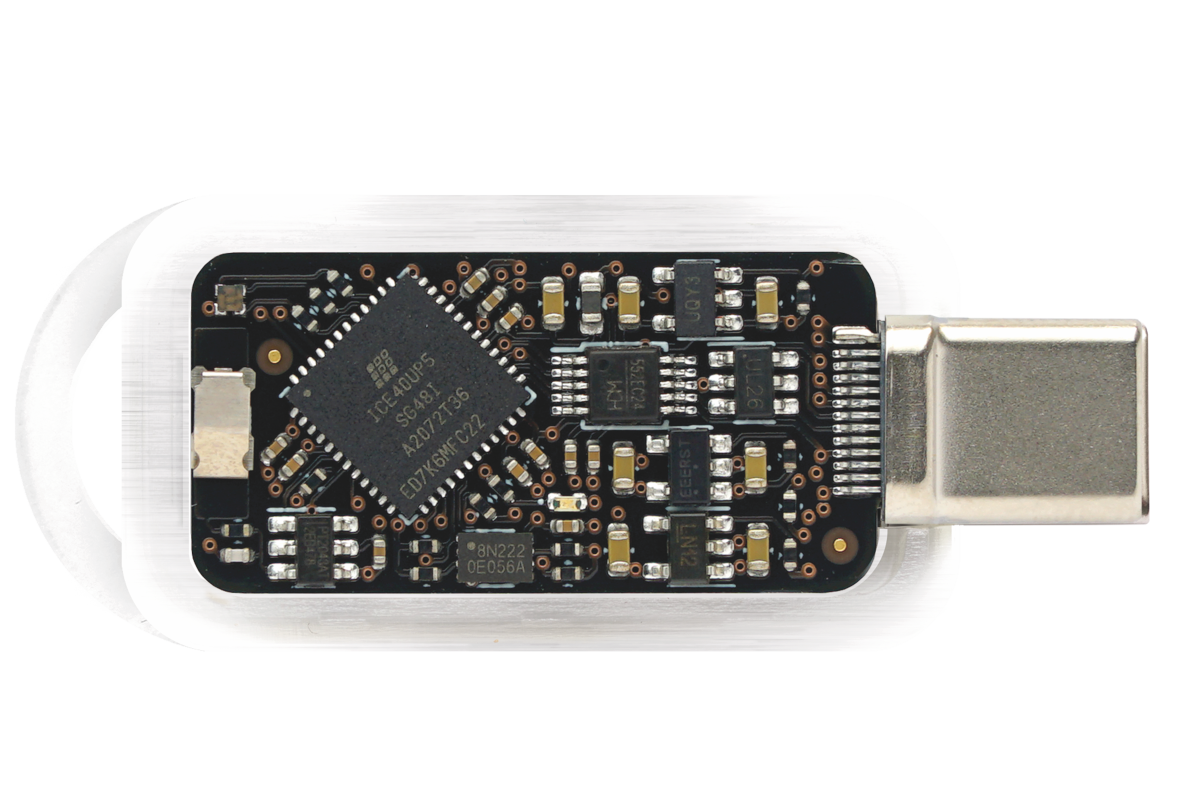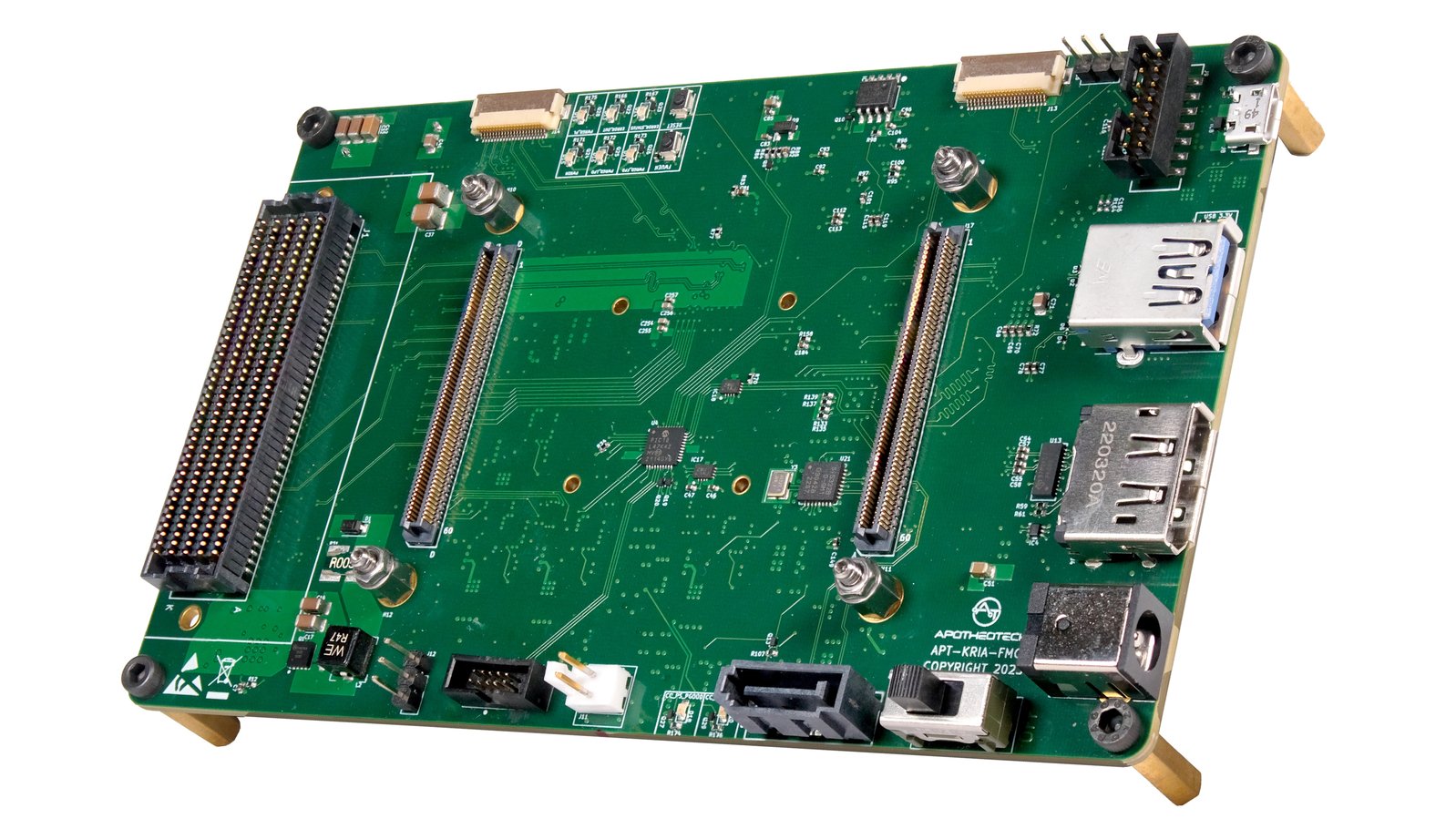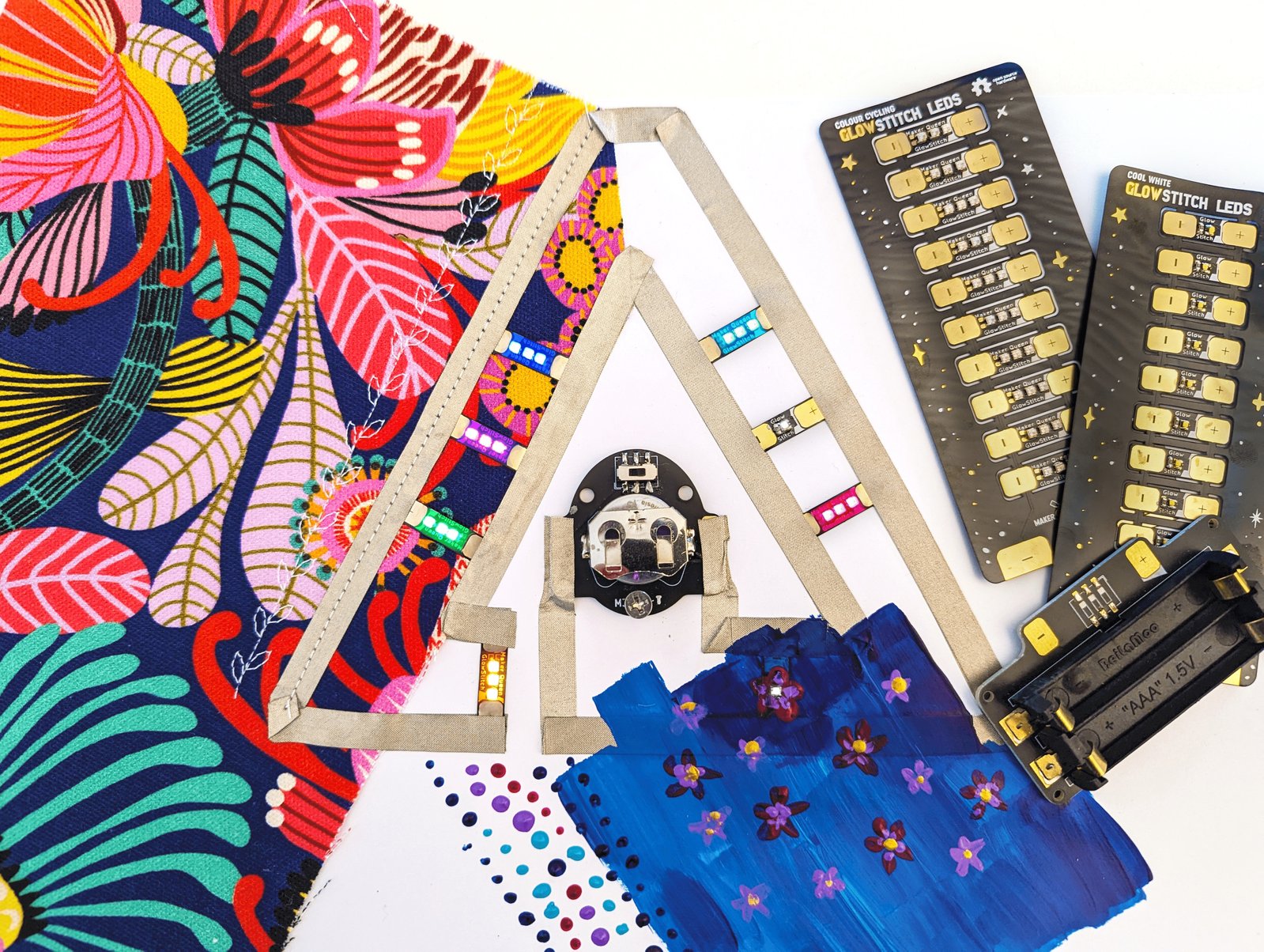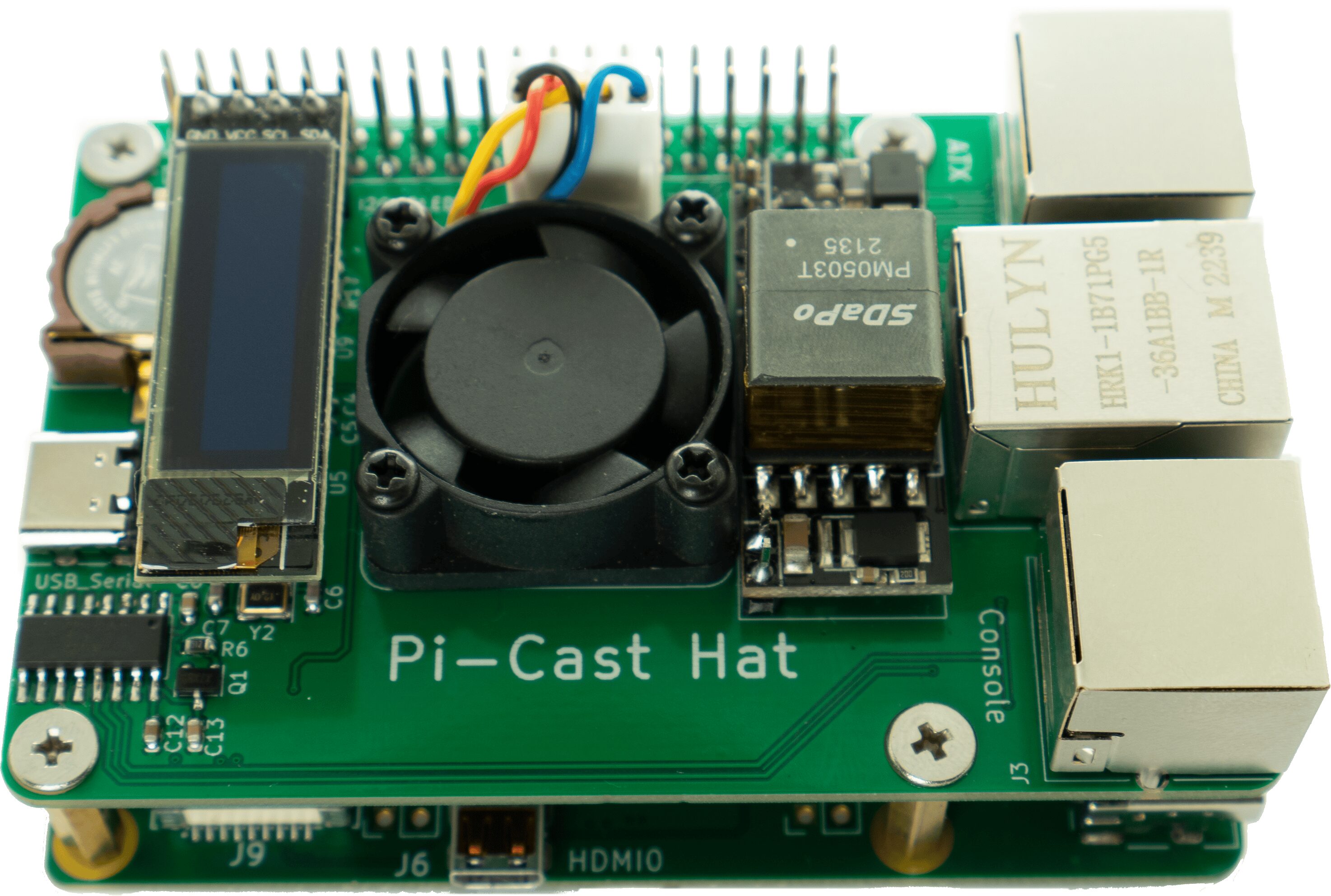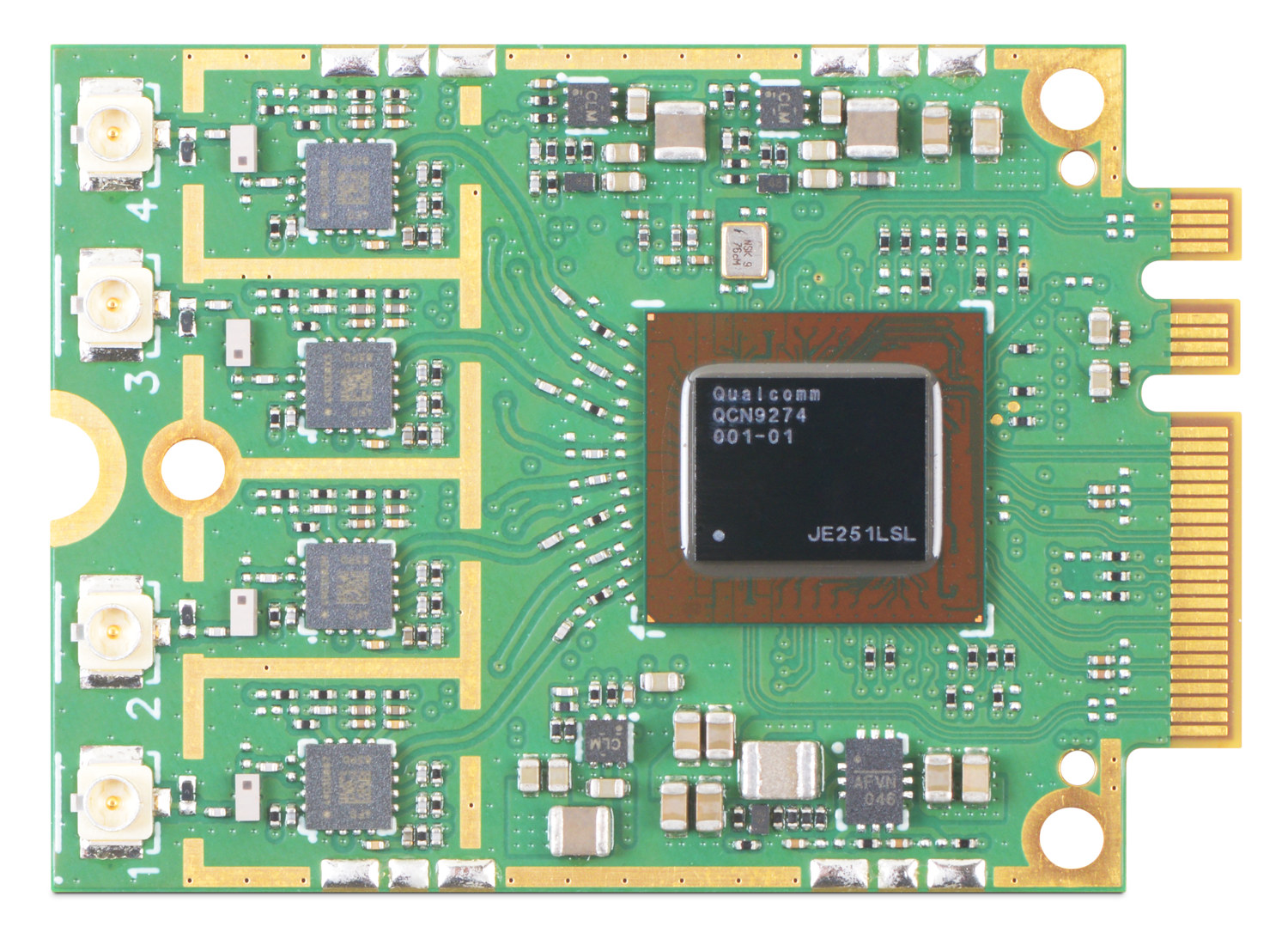When Qualcomm launched the powerful 4.2 GHz Snapdragon X Elite 12-core Arm SoC for “mobile PCs” (better known as laptops), I was surprised they showed benchmarks for both Windows and Linux as in the past, the company focused on Windows only for this type of processor. But at the time we were only shown Geekbench 6.2 results in Linux, so it was not clear what was supported at the time. But a recent post by Abel Vesa, Linaro engineer, explains a fully working Debian 12 image with GPU rendering and WiFi connectivity was ready right before launch and work is now being done to upstream the code to Linux mainline. In this post, he shares the Linux upstreaming plan and provides instructions to install Debian 12 on an official Snapdragon X Elite reference design. Upstreaming will be done in two parts, starting with support for the following: Qualcomm Oryon CPUs Clocks, […]
OpenWrt One/AP-24.XY is an upcoming router board developed by OpenWrt and Banana Pi
OpenWrt developers have started the process to develop the “OpenWrt One/AP-24.XY” router board based on MediaTek MT7981B (Filogic 820) SoC and MediaTek MT7976C dual-band WiFi 6 chipset, and designed in collaboration with Banana Pi that will also handle manufacturing and distribution of the router board. As of the OpenWrt 23.05 release, close to 1,800 routers and other devices are officially supported by the lightweight embedded Linux operating system, and many more claim to be running OpenWrt through a fork of the OS. But none of those are made by OpenWrt developers who have now decided to create their own router board in collaboration with Banana Pi since they’ve done such boards including the BPI-R4 WiFi 7 router SBC. OpenWrt One/AP-24.XY preliminary specifications: SoC – MediaTek MT7981B (Filogic 820) dual-core Cortex-A53 processor @ 1.3 GHz System Memory – 1GB DDR4 Storage 128 MB SPI NAND flash for U-boot and Linux 4 […]
Tillitis Tkey is an open-source RISC-V security key in a USB-C case
Tillitis’ TKey is a small, simple security key in a USB-C form factor, and described as a “new type of flexible USB security token” that is inspired by DICE (Device Identifier Composition Engine) and measured boot powered by a simple 32-bit RISC-V core, the PicoRV32, in a Lattice iCE40 UP5K FPGA. While we have covered hardware security modules in the past, this is the first security key we have seen that is based on an FPGA running a RISC-V core. The security token lacks persistent, onboard storage, unlike alternatives such as Yubikey Neo. Apps need to be loaded onto the key every time it is connected to a host device. It uses measured boot to generate a unique identifier for each application and is more secure than the alternatives since private keys are not stored on the device. Also, the hardware and software for the TKey are completely open-source for […]
Aper-Oculus is an open-source camera development board for AMD Xilinx’s Kria SoM (Crowdfunding)
The Aper-Oculus board is an open-source hardware camera carrier board for the AMD Xilinx Kria system-on-modules aimed at high-speed computer vision applications. The carrier board is built around the Sony SLVS-EC (Scalable Low-Voltage Signaling with Embedded Clock), a high-speed interface standard that delivers high-resolution video output to the FPGA. It also features several connectivity options, including dual MIPI connectors, USB 3.0, DisplayPort, and SATA to accommodate the varying demands of AI and robotics projects. The Kria K24 and K26 SOMs are adaptive system-on-modules designed for edge and vision applications. These small modules are ruggedized and come with hardware acceleration enabled out-of-the-box. The Kria lineup also includes a series of starter kits, such as the KR260 Robotics Starter Kit, which are designed for early evaluation and development. Aper-Oculus specifications: Processor-Board Support – Compatible with AMD Xilinx Kria SOMs Video Interface – SLVS-EC for high-speed, high-quality video input Expansion – FMC connector […]
GlowStitch LEDs – A machine-sewable LED board for adding lights to wearables and crafts (Crowdfunding)
GlowStitch LEDs is an innovative new project that is aimed at making machine-sewable LEDs for wearable tech and special crafts of all forms. The LEDs are made from flexible circuit boards which makes them sewable with a machine and usable for various creative projects by makers, cosplayers, fashion designers, and hobbyists. Until now, sewing LEDs to clothing and soft circuits (e-textiles) had to be done by hand with conductive thread, an arduous process that requires a lot of patience. With the GlowStitch LEDs, creative projects can be prototyped using conductive tape and actualized with a sewing machine. This project has a focus on education and the kit is designed to be used by makers of all skill levels. The LED strips can be machine-washed. However, the maker recommends hand-washing with no tumble dry. The battery should always be removed before washing. Although this is not a kit that requires coding […]
Pi-Cast is a portable KVM switch based on Raspberry Pi CM4 (Crowdfunding)
The Pi-Cast KVM is a compact, open-source KVM (Keyboard, Video, Mouse) over IP device based on the Raspberry Pi CM4. It is powered by PiKVM, an open-source IP-KVM solution, and allows you to control and manage other devices remotely regardless of the operating system or even if one isn’t installed. The Pi-Cast KVM is capable of controlling any device with HDMI and USB ports. It works for low-level access and enables BIOS and UEFI configuration without an operating system installed. You can turn off and start the target system, as well as check for low-level hardware problems, all from a web browser. The Pi-Cast KVM is similar to the PiKVM v3 but is built around the Raspberry Pi CM4 (like the PiKVM v4) instead of being a HAT for Raspberry Pi SBC. The company behind this device has compared the Pi-Cast with market alternatives such as PiKVM v4 Plus and […]
8Devices Noni M.2 WiFi 7 module supports FirmUx embedded Linux distribution
8Devices Noni is a family of M.2 A+E-Key WiFi 7 modules built on the QCN9274/QCN6274 chipsets, delivering up to 11 Gbps link rate in 4×4 MIMO or split 2×2 + 2×2 configurations, and supporting FirmUX embedded Linux OS. The Noni modules support Multi-Link Operation (MLO) for simultaneous communication on different frequencies and adaptive interference puncturing in order to maintain performance in various environments and the QCN9274-based variants also support advanced features such as Provisioned Multi-Link, Dense deployment, and Location and RF sensing. 8devices Noni specifications: All the Noni modules support a 2-lane PCIe Gen 3 interface connection to the host device. 8devices Noni modules support the FirmUX embedded Linux platform that provides developers a choice between fully open-source or proprietary Qualcomm drivers. The OS enables WPA3 security, comes with a responsive UI dashboard, supports Wireguard VPN, and the company claims up to 34 percent improvement over OpenWrt on the earlier […]
Silicon Labs partners with Nabu Casa to support Home Assistant development
Silicon Labs has entered an official partnership with Nabu Casa, the company behind the popular Home Assistant home automation software, to support the development of Home Assistant open-source software and Silicon Labs-based hardware platforms. Most open-source embedded software projects start as a one-person (or a small team) effort as the vendor-provided firmware and related software may not have the features set needed by this user or group of users. So they hack existing hardware to build something that better fits their requirements often without input/help from the silicon vendor or product manufacturer. But sometimes the project becomes popular enough that large companies start to help it with support and funding. That’s apparently the case for Home Assistant project with Silicon Lans and Nabu Case entering an official partnership. The announcement does not provide details about the partnership but explains this should lead to better support and improvements for both Home […]


